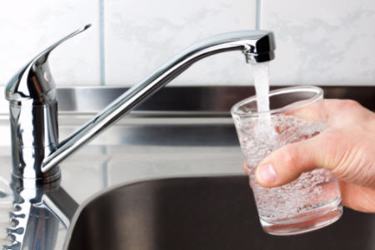Critics Argue New York's New Water Regulations Would Threaten Consumer Health


New York State is dealing with its fair share of drinking water quality issues, including ongoing 1,4-dioxane contamination, problems with lead-based infrastructure, and concerns over per- and polyfluoroalkyl substances (PFAS). So, state officials are working to put new rules in place that will keep chemicals out of the public drinking water supply.
“Since 2018, New York has been inching closer to joining a handful of states trying to make sure that public water supplies don’t contain harmful levels of chemicals, including those found in some non-stick pots and pans, paint strippers, stain resistant clothing and firefighting foams,” the Associated Press reported. “State health officials said … that regulations could be finalized as early as April, and water suppliers would then face deadlines for testing drinking water and notifying the public about potentially dangerous levels of contaminants.”
But the plan has come under scrutiny from environmentalists and other critics who feel that the new plan offers too much leeway to potential violators. Under the new plan, water suppliers may receive deferrals that keep them from being punished with formal drinking water violations and would allow them to delay notifying the public about contamination levels for a full year, rather than having to do so every three months.
“The current process makes water suppliers test for harmful chemicals and, if levels pass a certain contaminant threshold, notify the public and create a timeline to decontaminate the supply,” WETM reported. “The new process would let water suppliers defer a formal violation for up to three years. Water suppliers would only notify the public annually, even though three months is standard for organic chemicals. The proposed revision does not specify what goes into public notification, so specific results — like the contaminant level — could be kept from the public.”
New Yorkers have until early March to comment on the plan, but it has already received a significant amount of criticism. But some state officials argue that the plan would be effective in reducing potential harm to consumers.
“A Department of Health spokeswoman said New York’s proposed standards are among the nation’s toughest,” the AP reported. “Water suppliers would have 90 days once the state finalizes the contaminant limits to request a deferral, which the state could also take away if suppliers don’t show they’re working to clean up their water.”
The New York State Department of Health (NYSDOH) has emphasized that it reserves the right to hold water suppliers accountable and that it would closely monitor deferral requests.
“The option for deferral of enforcement does not nullify notification requirements for exceedances, is not intended to delay testing or treatment, and will not reduce transparency in any way,” a health department spokesperson said, per WETM. “NYSDOH reserves the right to rescind any deferrals if water systems aren’t making adequate progress.”
To read more about the rules that state’s use to govern water supply quality, visit Water Online’s Regulations And Legislation Solutions Center.
